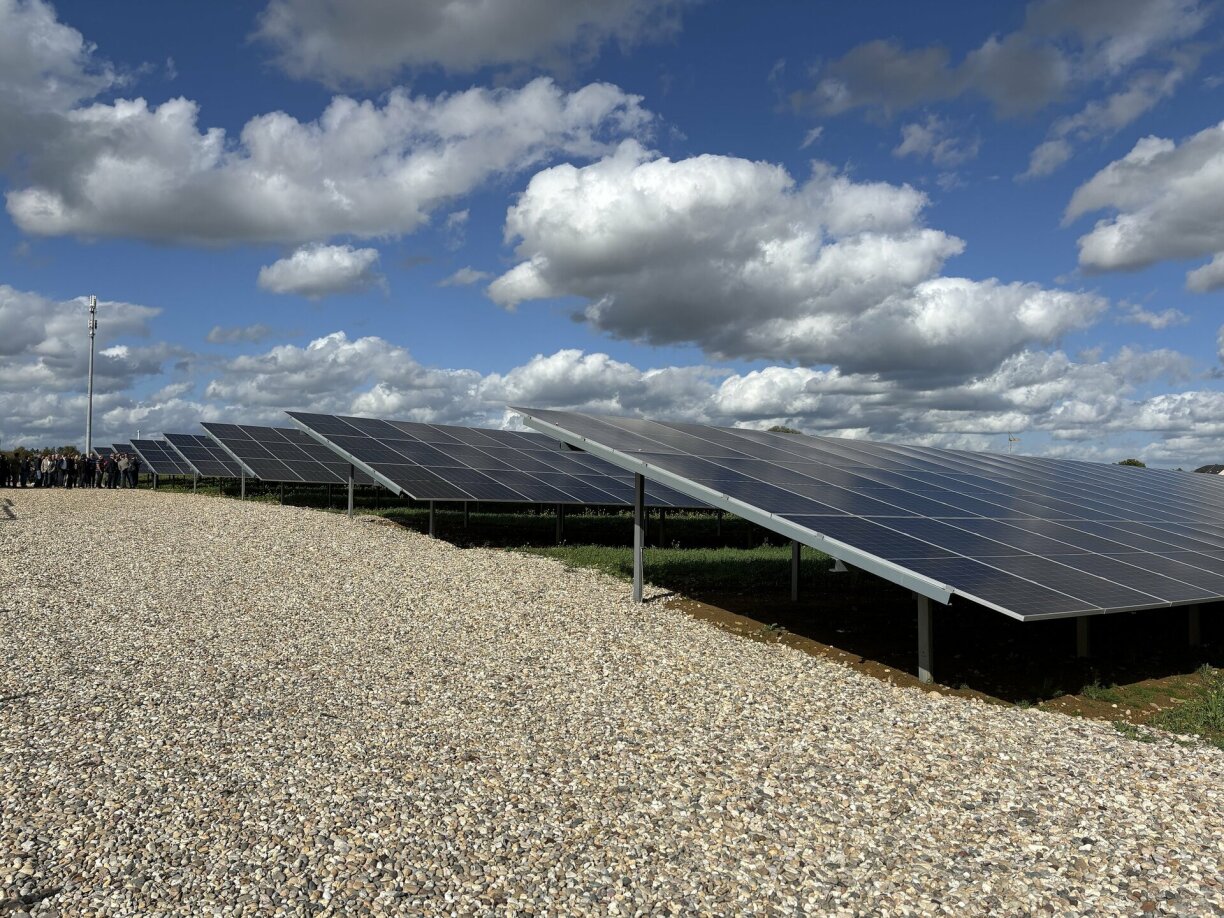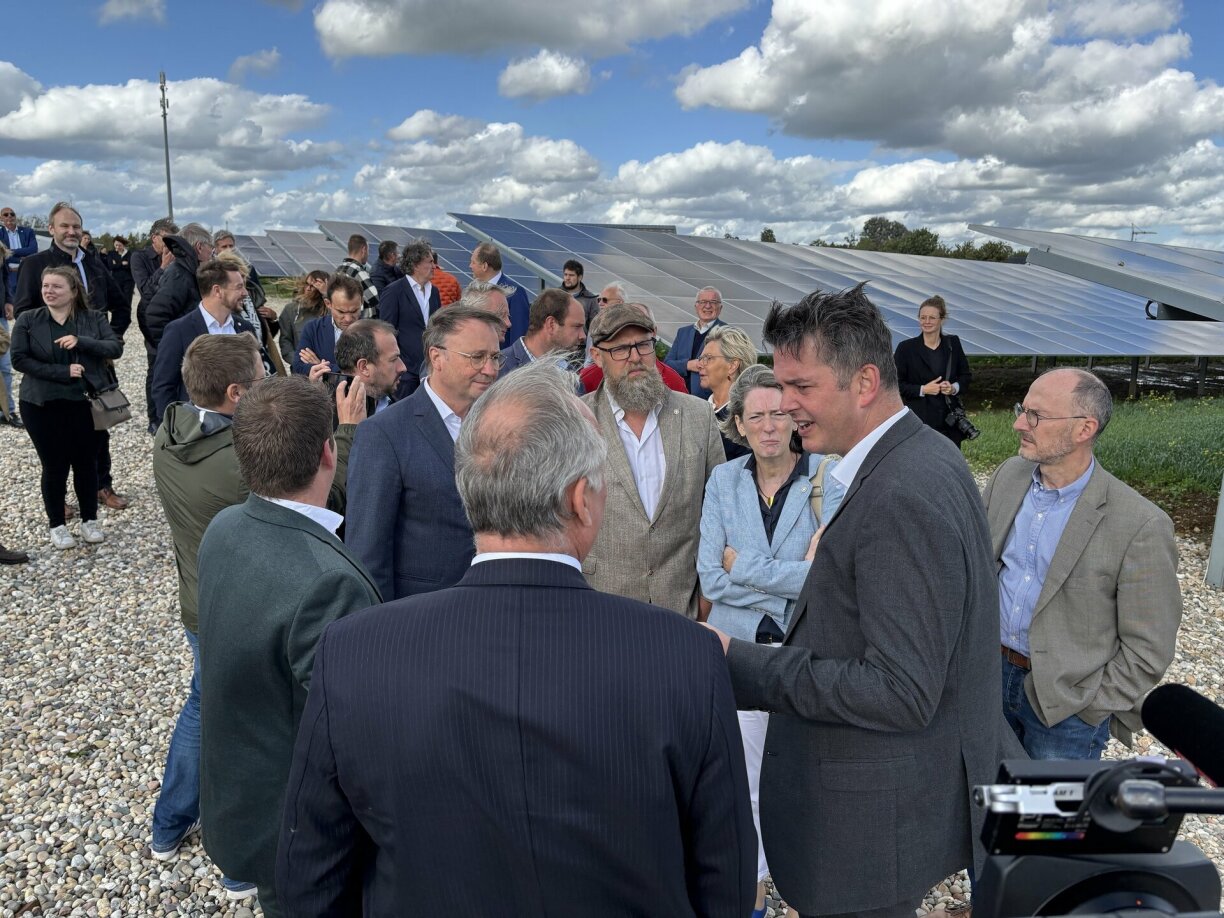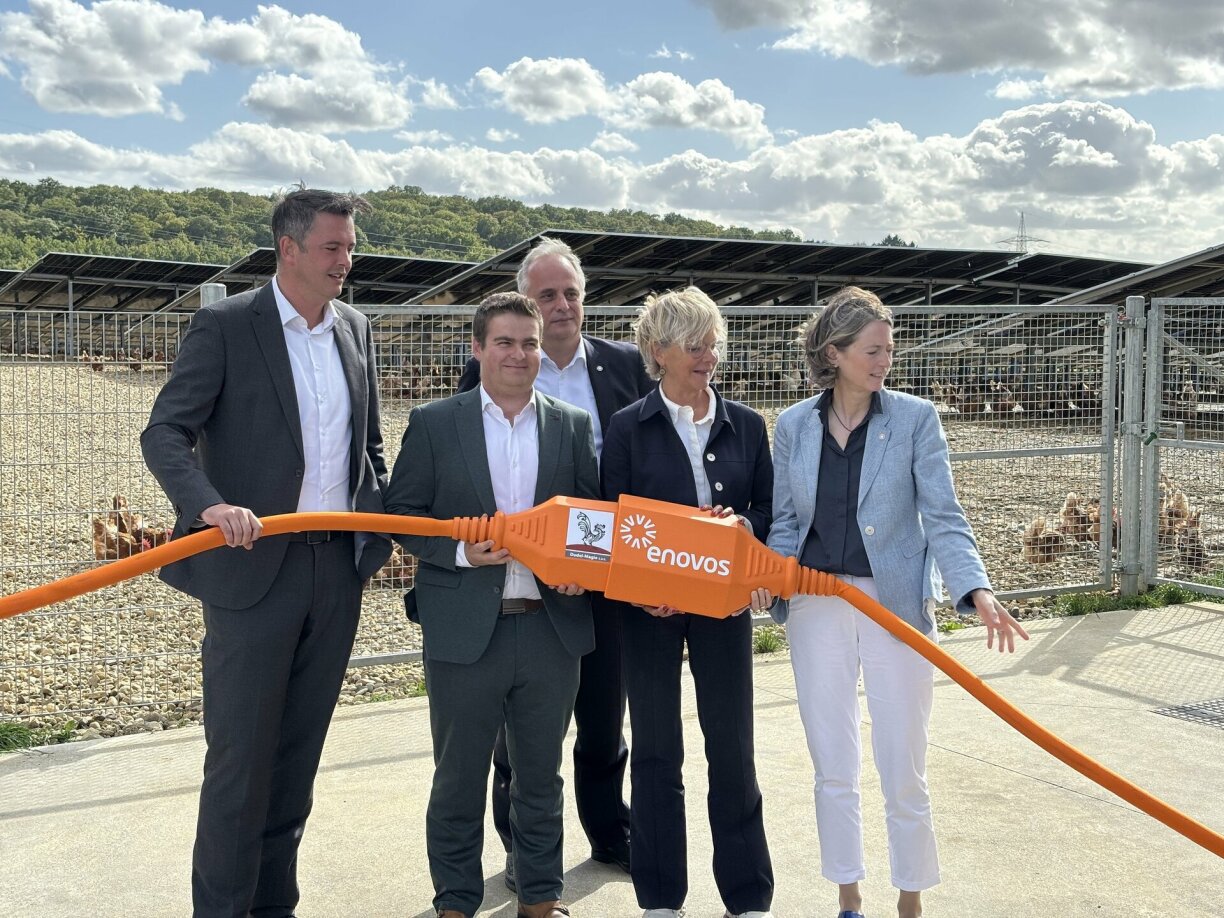A new agro-photovoltaic installation in Sprinkange has begun operations, representing a dual-purpose investment in renewable energy and sustainable agriculture. The facility is capable of producing enough electricity to power approximately 920 households.
Such projects are critical for Luxembourg to achieve the goals of its National Energy and Climate Plan, which mandates that 37% of the country’s electricity must come from renewable sources by 2029.
The project is a partnership between Democratic Party (DP) MP Luc Emering’s farming business and the energy company Enovos. It uniquely supports both energy production and agricultural output, specifically the welfare of 6,000 organic chickens that roam beneath the 5,900 solar panels.
The overhead panels provide the flock with significant benefits, offering protection from predators like crows, potential thieves, and some insulation from the noise of frequent overhead aircraft.

At the official inauguration of the facility, which has already been operational for six months, Minister of Agriculture Martine Hansen emphasised the project’s alignment with agricultural priorities. “I always say that in ‘agri-photovoltaics’, ‘agri’ comes first. This means that agriculture, our food production, must always be the priority. As is the case here”, she stated.
Farmer Luc Emering reported positive initial results from the first half-year of operation. “Our experience has shown us that we have a south-facing installation, that production is truly excellent, and that the animals really appreciate it. They genuinely use every last square metre”, he said. He did note that one operational challenge has been managing a high number of grid-mandated production curtailments.

The facility’s operation highlights a key challenge in renewable energy: occasional overproduction. To maintain grid stability, the plant must sometimes be temporarily disconnected. This process, known as curtailment, is a known issue, as acknowledged by Minister of the Economy and Energy Lex Delles.
Minister Delles confirmed that expanding storage capacity is a government priority to address this problem. “That’s why in July we presented the Luxembourg storage strategy, which we are working on at the moment,” he stated. The strategy involves deploying “neighbourhood batteries [...] grid batteries [...] all types of batteries” to store surplus energy. This approach aims to reduce curtailments and ensure electricity is available when demand is high.
The €3 million agro-photovoltaic plant is located in Sprinkange, in the municipality of Dippach. The project was financed through a partnership between farmer Luc Emering and the energy company Enovos, which covered half of the total cost.
